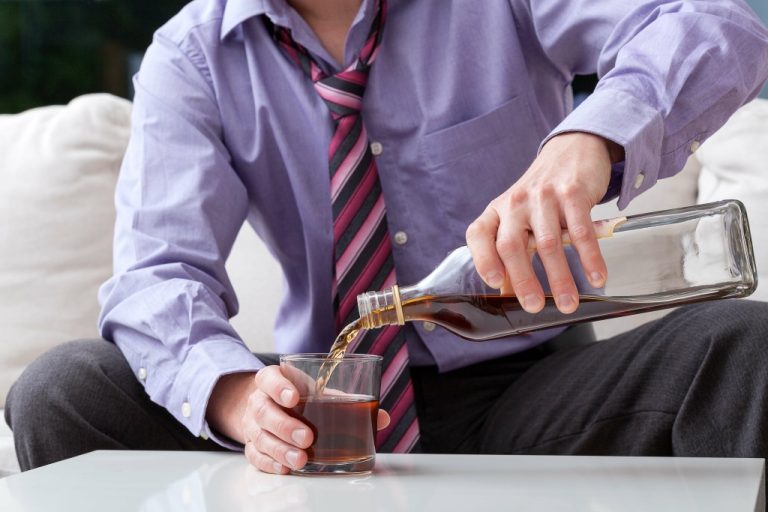Drinking may no longer be about enjoyment or socializing, but rather about avoiding withdrawal symptoms. It’s similar to how someone addicted to opioids might continue using to avoid getting Sober living house sick. Understanding the effects of alcohol on the nervous system provides insight into the causes of hangover tremors.
Persistent or Severe Shakes
If you’re struggling with alcohol use, it’s important to reach out to a healthcare professional for assistance. In extreme cases, alcohol withdrawal can lead to a condition known as delirium tremens. It is often caused by reducing or stopping alcohol intake after a period of heavy drinking. Immediate medical care is necessary for individuals experiencing delirium tremens 2. It is crucial to note that shaking and sweating after drinking alcohol can sometimes indicate underlying health conditions.

Empowering Change: The Impact of Raising Alcohol Prices on Deaths
Alcohol consumption can also lead to low blood sugar levels, which play a significant role in the onset of hangover shakes. Alcohol inhibits glucose production in the liver and leads to a rapid drop in blood sugar levels. This drop can cause symptoms such as shakiness, weakness, fatigue, and confusion, which are often experienced during a hangover. Hangovers can manifest after only one instance of drinking, producing symptoms such as nausea, vomiting, trembling, sweating, anxiety, headaches, and sensory disturbances. These symptoms share similarities with those of mild alcohol https://centralyma.org/our-transitional-sober-living-program/ withdrawal syndrome.

Unraveling Alcohol Withdrawal and Alcohol Tremors
One of the most effective ways to manage hangover shakes is by prioritizing rest and sleep. Getting enough sleep can help alleviate hangover symptoms, including shakes. Resting allows your body to recover and restore its natural balance after a night of heavy drinking. By giving your body the time it needs to rest, how to stop hangover shakes you can help reduce the intensity and duration of hangover shakes. If you choose to drink, there are strategies to help minimize the risk of hangovers, including hangover shakes. Hangovers occur due to dehydration, poor sleep quality from alcohol metabolism, blood sugar imbalances, and inflammation.
- Magnesium is a natural muscle relaxant and can help reduce the severity of tremors and other involuntary movements.
- Drowsiness and impaired cognitive functioning are the two dominant features of alcohol hangovers.
- Also known as alcohol tremors or alcohol shakes, hangover shakes refer to the involuntary trembling or shivering of the body that can occur in the aftermath of heavy drinking.
- The severity and duration of these shakes can vary depending on factors such as the amount of alcohol consumed and individual body composition.
This helps reduce the risk of complications and supports the body’s recovery. Alcohol shakes occur after a period of heavy drinking and are a sign of the body dealing with alcohol withdrawal. They involve involuntary shaking, often in the hands, and can indicate a serious health issue. Getting sufficient rest and sleep is essential for aiding the body’s recovery process. When we sleep, our bodies undergo repair and restoration, which is crucial for maintaining good health.
- Withdrawing from alcohol can be incredibly dangerous without professional help, especially if you suffer from chronic alcoholism.
- It is important to recognize signs of alcohol dependence and seek treatment if you identify a problem.
A healthcare provider can help guide you through the process and might even recommend treatments to make things a bit easier on you. If you have been engaging in frequent alcohol abuse and suddenly stopped drinking alcohol, shaking might be a sign that you are in the early stages of withdrawal. Since stopping alcohol can lead to severe symptoms like seizures and hallucinations, you should seek help from an alcoholism treatment program. Even though it is possible for shaking to be part of your hangover, it can also be a symptom of alcohol withdrawal. Withdrawing from alcohol can be incredibly dangerous without professional help, especially if you suffer from chronic alcoholism. Thankfully, there are ways to tell the difference between normal hangover tremors and alcohol withdrawal shakes.
The liver metabolizes alcohol at a rate of approximately one drink per hour, and any remaining alcohol continues to circulate in the bloodstream. While sobering up may help some get their balance back, for others, as they go through withdrawal or have a hangover, the brain is still trying to get back to normal. It’s firing signals incorrectly to the body, and tremors may be one of the consequences of this. Tackle hangover shakes head-on with our guide on causes, risks, and effective prevention strategies. A little bit of shaking after drinking can feel unpleasant, but it usually isn’t anything to worry about it.
However, regardless of their intensity, hangover shakes can be a distressing symptom that can disrupt daily activities and cause significant discomfort. While prevention is key, if you find yourself experiencing hangover shakes, there are remedies and treatments that may provide relief. It’s important to keep in mind that these remedies may help alleviate symptoms, but they won’t cure a hangover. By understanding these factors, individuals can take steps to alleviate symptoms and promote a quicker recovery. During alcohol consumption, the receptors for GABA increase, leading to a sedative effect.